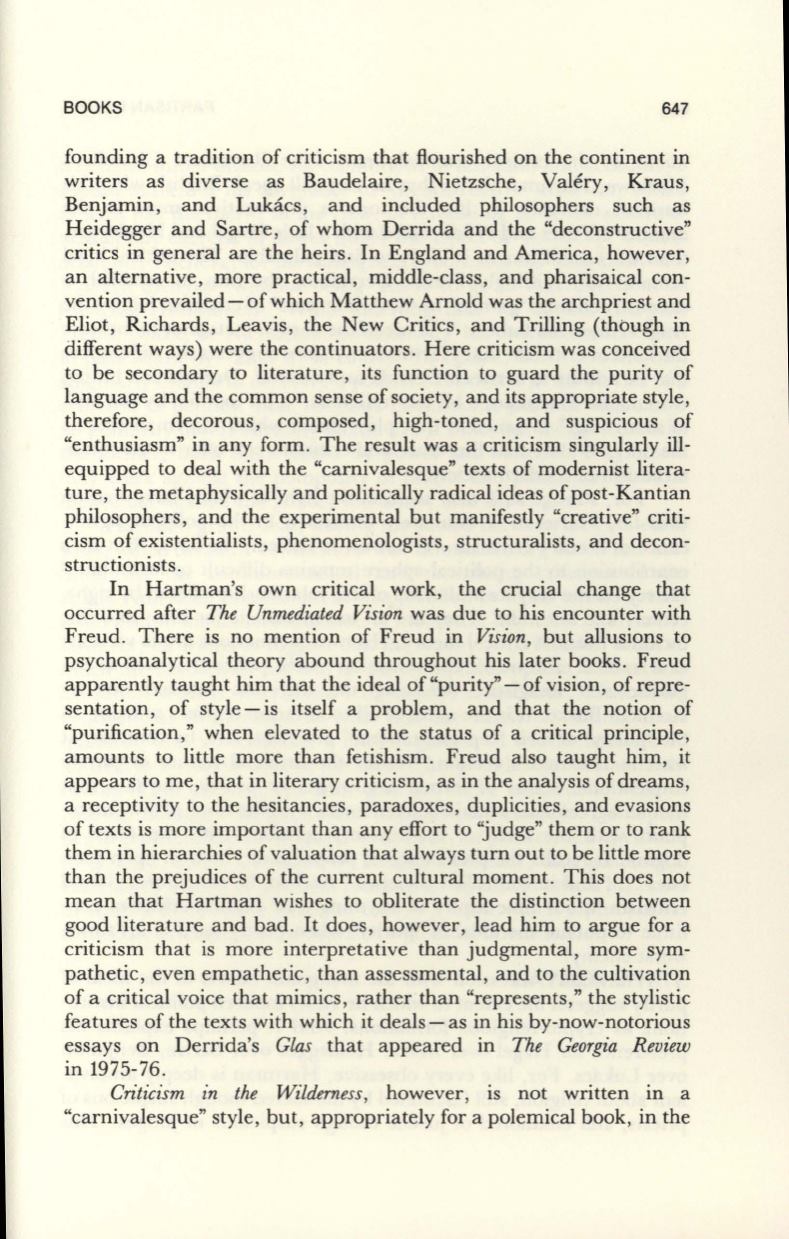
BOOKS
647
founding a tradition of criticism that flourished on the continent in
writers as diverse as Baudelaire, Nietzsche, Valery, Kraus,
Benjamin, and Lukacs, and included philosophers such as
Heidegger and Sartre, of whom Derrida and the "deconstructive"
critics in general are the heirs.
In
England and America, however,
an alternative, more practical, middle-class, and pharisaical con–
vention prevailed - of which Matthew Arnold was the archpriest and
Eliot, Richards, Leavis, the New Critics, and Trilling (thbugh in
different ways) were the continuators. Here criticism was conceived
to be secondary to literature, its function to guard the purity of
language and the common sense of society, and its appropriate style,
therefore, decorous, composed, high-toned, and suspicious of
"enthusiasm" in any form. The result was a criticism singularly ill–
equipped to deal with the "carnivalesque" texts of modernist litera–
ture, the metaphysically and politically radical ideas of post-Kantian
philosophers, and the experimental but manifestly "creative" criti–
cism of existentialists, phenomenologists, structuralists, and decon–
structionists.
In
Hartman's own critical work, the crucial change that
occurred after
The Unmediated Vision
was due to his encounter with
Freud. There is no mention of Freud in
Vision,
but allusions to
psychoanalytical theory abound throughout his later books. Freud
apparently taught him that the ideal of "purity" - of vision, of repre–
sentation, of style - is itself a problem, and that the notion of
"purification," when elevated to the status of a critical principle,
amounts to little more than fetishism. Freud also taught him, it
appears to me, that in literary criticism, as in the analysis of dreams,
a receptivity to the hesitancies, paradoxes, duplicities, and evasions
of texts is more important than any effort to "judge" them or to rank
them in hierarchies of valuation that always turn out to be little more
than the prejudices of the current cultural moment. This does not
mean that Hartman wishes to obliterate the distinction between
good literature and bad.
It
does, however, lead him to argue for a
criticism that is more interpretative than judgmental, more sym–
pathetic, even empathetic, than assessmental, and to the cultivation
of a critical voice that mimics, rather than "represents," the stylistic
features of the texts with which it deals - as in his by-now-notorious
essays on Derrida's
Glas
that appeared in
The Georgia Review
in 1975-76.
Criticism in the Wilderness,
however, is not written in a
"carnivalesque" style, but, appropriately for a polemical book, in the


